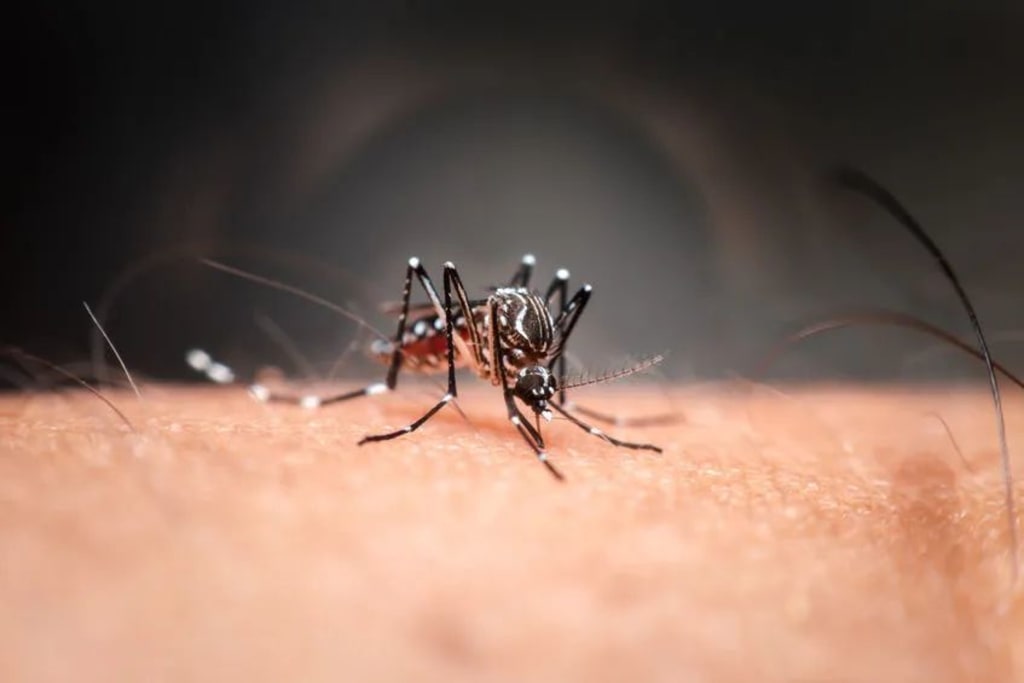Cell TODAY: How good are mosquitoes at detecting human scent? The results surprised scientists!
A scientific study on mosquitoes was published online today in Cell, a leading academic journal. According to the paper, here's the bad news: keeping mosquitoes from biting is a lot harder than previously thought!

A scientific study on mosquitoes was published online today in Cell, a leading academic journal. According to the paper, here's the bad news: keeping mosquitoes from biting is a lot harder than previously thought!
This summer, there must be a lot of people tortured by mosquitoes not light, from time to time to ask themselves: coated mosquito repellent also useless, I how so recruit mosquitoes ah? ! It's not so bad for you, actually. It's the mosquitoes. In this new study, scientists have used a variety of experiments to confirm that mosquitoes have evolved a very special olfactory system in order to suck your blood -- so special that it overturns the olfactory mechanism discovered by Nobel Prize winners. As a result, mosquitoes are extremely good at smelling where you are!
Mosquitoes are known to be attracted by carbon dioxide exhaled, as well as by body odors such as indole. But that's not all, "the two ingredients add together to create the magic effect of one plus one equals twenty! According to Meg Younger, Ph.D., the paper's corresponding author, when mosquitoes smell both signals, they become super-excited and become dedicated and fierce hunters of human blood!
To understand why mosquitoes are so strongly attracted to body odor and carbon dioxide, Dr. Younger and his colleagues began to hone in on the mosquito's olfactory system, see which neurons respond to carbon dioxide and which respond to body odor, and then trace the pathways they send to the brain.
Professor Leslie Vosshall, the lead author of the study, has been working with mosquitoes for years at Rockefeller University, analysing their taste in blood and even giving them diet pills to control their appetite. In previous work, Professor Vosshall's team produced the first complete reference genome for the mosquito Aedes aegypti.
One of the things you can do when you have complete genome information is to edit the genome of mosquitoes. So the team used the gene-editing tool CRISPR to manipulate female Aedes aegypti mosquitoes by attaching a fluorescent marker protein to neurons with carbon dioxide receptors and another marker to neurons that sense body odor chemicals.
The results of the experiment surprised them: nothing like the classic theory in the textbook!
According to the textbook on olfactory mechanism of classical theory, namely Nobel laureates Linda Buck professor and professor Richard Axel in mice found that olfactory perception system of organization is very orderly, each olfactory neurons express only a single a receptor, testing a set of specific chemical substances, such as some neurons to respond to a banana scent, Some respond to the smell of gasoline; The nerve endings then connect to individual olfactory balls in the olfactory bulb, each receiving signals from olfactory neurons expressing the same receptor. Thousands of olfactory balls allow us to detect and distinguish thousands of different odors.
However, when Professor Vosshall and his colleagues examined the olfactory receptor genes in mosquitoes using different fluorescent colors, they found multiple types of odor receptors on one olfactory neuron!
To confirm this unexpected result, the team turned to other experimental techniques, such as mononuclear RNA sequencing, which has emerged in recent years and can detect which genes are producing proteins in individual neurons. It turns out that, indeed, a mosquito's olfactory neuron can make multiple receptors.
In addition, in collaboration with scientists at the Swedish University of Agricultural Sciences, the research team inserted electrodes into individual olfactory neurons of mosquitoes to measure the cellular response to odors. Similarly, this group of experiments showed that mosquitoes can sense a variety of different odors -- like a perfume or smelly feet -- with a single neuron.
Since most olfactory neurons at the same time have more than one type of odor receptors, this not only means that the mosquito has a strong ability to smell the complex smell of carbon dioxide and body odor, also means that if we tried to avoid them by blocking the mosquitoes a receptor is naive, because they can easily by other receptors to continue chasing our blood.
"If we want to kill mosquitoes, we have to work harder, because targeting just one receptor doesn't work," Professor Vosshall concluded. "Any future attempts to control mosquitoes by repellent or other means must take into account how attractive humans are to mosquitoes."





Comments
There are no comments for this story
Be the first to respond and start the conversation.